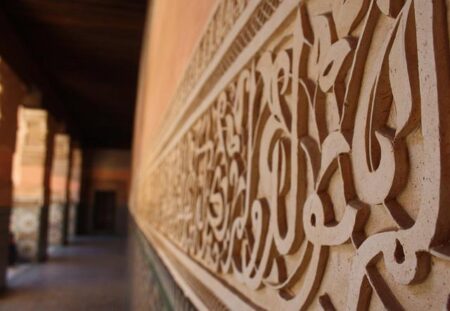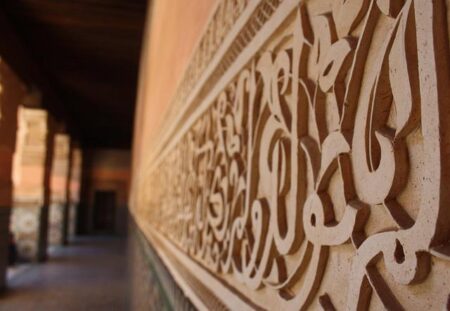Madagascar Protests Escalate Amid Political Turmoil and Economic Struggles
Thousands of Malagasy citizens have once again flooded the streets, demonstrating their persistent dissatisfaction despite the government’s recent declaration to disband its current cabinet. Adorned in the vibrant hues of Madagascar’s flag, protesters marched through Antananarivo and other major urban centers, vocally demanding sweeping political reforms against a backdrop of worsening economic conditions and growing public unrest. This resurgence of mass demonstrations reflects long-standing grievances related to governance failures and endemic corruption. As tensions rise, the government faces increasing pressure to respond effectively while navigating an increasingly volatile political environment.
Underlying Causes Fueling Madagascar’s Social Unrest
The recent wave of protests has brought into sharp focus widespread dissatisfaction with governmental policies perceived as disconnected from everyday realities. Despite announcements aimed at appeasing dissent-such as plans for cabinet dissolution-citizens remain resolute in voicing concerns over critical issues including:
- Escalating Cost of Living: Inflation rates have surged beyond 12% in recent months, making essentials like food and fuel unaffordable for many families.
- Pervasive Corruption: Repeated allegations involving misuse of public funds by officials have eroded trust in state institutions.
- Deteriorating Public Services: Access to quality education and healthcare remains limited, particularly in rural areas where infrastructure is lacking.
This collective frustration transcends regional divides, uniting diverse communities under a shared demand for accountable leadership. The table below summarizes key factors driving this unrest:
| Main Issue | Description |
|---|---|
| Economic Hardship | Sustained inflation impacting household purchasing power |
| Public Infrastructure Deficits | Lackluster investment resulting in poor health and education services |
| Governance Transparency | Civic demands for anti-corruption initiatives and open government practices |
Growing Calls for Political Reform Amidst Persistent Demonstrations
The capital city has become a focal point where thousands rally daily, urging leaders to embrace transparency and reform. Protesters’ chants such as “Accountability now” reverberate through streets lined with makeshift barricades symbolizing resistance against entrenched power structures. Central themes emerging from these gatherings include demands for an overhaul that prioritizes citizen welfare over elite interests.
Civil society organizations have gained prominence during this period by championing inclusive governance reforms. Their advocacy centers on establishing independent bodies like an autonomous electoral commission designed to ensure fair representation.
Key protester concerns include:
- High-profile corruption cases involving senior officials undermining public confidence;
- Lack of equitable access to essential services such as healthcare facilities;
- < strong >Fair allocation of national resources ensuring marginalized groups are not left behind;
The government’s strategy-to quell unrest by dissolving its cabinet-has failed thus far to pacify demonstrators who insist that only substantive change will secure Madagascar’s future stability.
International Stakeholders Urged To Facilitate Democratic Engagement In Madagascar Crisis Â
As protests persist across Madagascar’s cities , calls intensify within diplomatic circles urging external actors -including regional bodies like the African Union-to support peaceful resolution efforts . Citizens express alarm over escalating instability , citing concerns about potential human rights abuses amid security crackdowns . Key issues highlighted by demonstrators encompass :
- Worsening economic conditions aggravated by ongoing political uncertainty ;< / li >
- Deficiencies in transparent governance mechanisms ;< / li >
- Risks posed by heavy-handed responses toward peaceful assemblies .< / li >
< / ul >In response , international experts recommend measures aimed at fostering constructive dialogue among all stakeholders :Â Â
- < li >Encouraging negotiations between opposition factions , civil society groups ,and government representatives ;< / li >< li >Ensuring protection frameworks are implemented safeguarding protesters’ rights ;< / li >< li >Supporting comprehensive electoral reforms enhancing democratic legitimacy .< / Li >
Looking Ahead: Navigating Madagascar’s Road Toward Stability And Reform Â
The ongoing demonstrations underscore profound dissatisfaction with current leadership amid complex socio-economic challenges facing Madagascar today . Although authorities’ decision to dissolve their cabinet signals recognition of crisis severity , it has yet to quell popular demands calling for genuine transformation rather than superficial adjustments . The coming weeks will be pivotal -both protesters’ persistence on one side ,and government willingness on the other -in determining whether dialogue can replace confrontation.
The international community watches closely hoping mediation efforts can foster reconciliation leading toward sustainable peace . Ultimately , how these dynamics unfold will shape not only domestic politics but also influence regional stability within East Africa moving forward.







